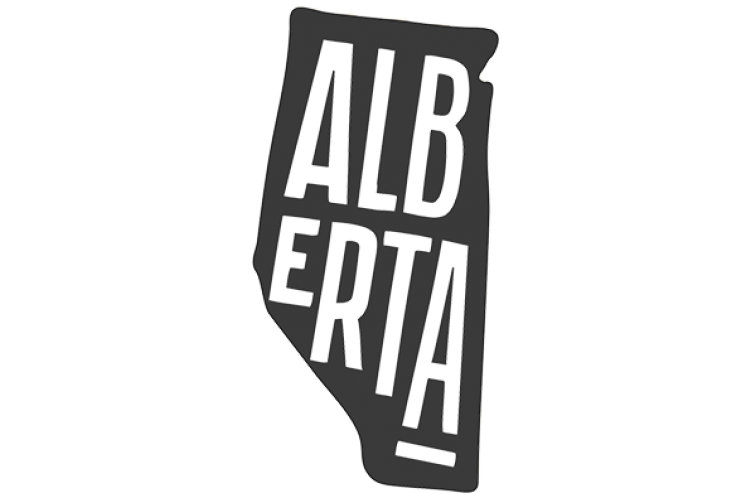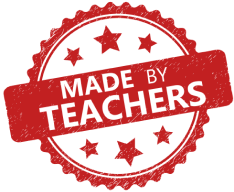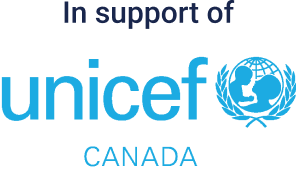Alberta Grade 6

CLICK HERE FOR CURRICULUM CONNECTIONS, LESSONS AND SUPPORT RESOURCES.
Kids Boost Immunity (KBI) provides educational content (lessons and support materials) developed by teachers and where needed, health experts, that is directly linked to curriculum and is available completely for free. Each lesson is paired with an online quiz that students can take on a laptop, tablet, or phone. Every time a student scores 80% or higher on a quiz, we donate life-saving vaccines to UNICEF Canada. To learn more about KBI, click here.
Click on the overarching curriculum themes below to see the curriculum outcomes that match KBI educational content. The full Grade 6 Alberta Curriculum Connections document is here.
- ENGLISH LANGUAGE ARTS AND LITERATURE 6
-
Curriculum:
ORGANIZING IDEA Conventions: Understanding grammar, spelling, and punctuation makes it easier to communicate clearly, to organize thinking, and to use language for desired effects.
LEARNING OUTCOME: Students apply and analyze conventions that support accuracy or enhance creative expression.
All KBI lessons are applicable.
Lessons have a link to unit/lesson plans on each lesson title. These include adaptable literacy building activities such as: vocabulary worksheets with phonetic structures, spelling exercises, matching definitions to vocabulary terms, sentence writing using vocabulary terms, prefix/ suffix exercises.
- SCIENCE 6
-
Curriculum:
SCIENCE 6 ORGANIZING IDEA Scientific Methods: Investigation of the physical world is enhanced through the use of scientific methods that attempt to remove human biases and increase objectivity.
LEARNING OUTCOME: Students investigate and describe the role of explanation in science.
- Knowledge
- Scientific explanations make sense of natural phenomena based on an investigation.
- Scientific explanations must be testable (falsifiable) by an investigation that will either support or contradict the explanation.
- Hypotheses are proposed scientific explanations developed prior to conducting an investigation.
- Hypotheses are based on prior scientific knowledge and understandings.
- Understanding
- Explanations are used in science to answer scientific questions.
- Skills & Procedures
- Discuss the role of scientific explanations.
- Develop and test a hypothesis based on a scientific explanation.
- Evidence and scientific explanations are subject to further investigation to determine their validity.
- Knowledge
- Further investigation can involve a variety of processes, such as
- continual collection of evidence over time
- discussion and debate in the scientific community
- conducting multiple investigations over long periods of time
- using new technologies and methods that reveal new evidence
- Further investigation can involve a variety of processes, such as
- Understanding
- Science is a self-correcting way of knowing about the world, where new evidence can change understandings and explanations.
- Skills & Procedures
- Discuss processes that can be used to validate evidence and explanations.
- Knowledge
- Scientific experiments performed with objectivity and a high level of accuracy produce trustworthy evidence to support explanations.
- Understanding
- Scientific explanations are constructed using reliable, objective data and evidence.
- Skills & Procedures
- First Nations, Métis, and Inuit share explanations of natural phenomena through
- written texts
- traditional knowledge
- visual forms
- stories and legends
- Scientific explanations can incorporate a variety of texts, such as
- visual forms; e.g., graphs, tables, flow charts, diagrams, and models
- written texts; e.g., research papers
- verbal presentations; e.g., stories and discussions
- First Nations, Métis, and Inuit share explanations of natural phenomena through
Applicable KBI lessons:
1. Critical Thinking & Evaluating Informaiton
- Literacy builder worksheet/answer guide
- Lesson worksheet/answers
- Video worksheet/answers
- Inquiry activities/answer guides
- Science Experiment - Terms and Activity
- Numeracy activity/answers
2. Germs, The Body's Defense System, & How Vaccines Help
- Lesson worksheet/answers
- Inquiry activities
- Knowledge
- SCIENCE 6
-
Curriculum:
SCIENCE 6 ORGANIZING IDEA Living Systems: Understandings of the living world, Earth, and space are deepened by investigating natural systems and their interactions.
LEARNING OUTCOME: Students investigate the characteristics and components of and interactions within ecosystems.
- Knowledge
- Ecosystems are complex systems of biotic and abiotic components.
- Biotic components of an ecosystem include plants, animals, and micro-organisms.
- Abiotic components of an ecosystem include
- energy from the Sun
- water
- soil
- air
- All components of an ecosystem influence each other either directly or indirectly; e.g.,
- animals rely on plants for food
- plants need water to grow
- energy from the Sun affects temperature
- decomposers help return nutrients to the soil
- Characteristics of ecosystems that affect diversity of organisms include
- geographic location, including climate patterns, landforms, and water sources
- size, from very small to very large
- complexity, including number and types of plants and animals
- Plants carry out the process of photosynthesis, which uses light, water, and carbon dioxide to produce oxygen and food in the form of sugar (glucose).
- Plants and animals use the oxygen that is released during photosynthesis for respiration.
- Chlorophyll in plants collects light needed for photosynthesis.
- Understanding
- Earth’s systems are interconnected and can be impacted by small changes.
SCIENCE 6 ORGANIZING IDEA Earth Systems: Understandings of the living world, Earth, and space are deepened by investigating natural systems and their interactions.
LEARNING OUTCOME: Students investigate climate, changes in climate, and the impact of climate change on Earth.
- Knowledge
- Earth’s systems interact with the Sun and each other to impact climate in various ways, including
- clouds reflecting sunlight into space
- greenhouse gases trapping heat from the Sun
- ice reflecting light from the Sun
- Changes in climate can be caused by human activities, including industrialization and pollution.
- The release of greenhouse gases into the atmosphere contributes to the warming of Earth.
- Personal actions that can help address human causes of global climate change include
- reducing personal consumption and waste
- Earth’s systems interact with the Sun and each other to impact climate in various ways, including
- Understanding
- Complex interactions between humans, Earth’s systems, and the Sun can impact climate and climate change.
- Skills & Procedures
- Relate impacts of natural processes and human activities on climate change.
- Identify personal actions that may affect global climate change.
- Knowledge
- Climate change can affect
- weather and extreme weather events
- migration patterns
- water resources
- frequency of forest fires
- Climate change can affect
Applicable KBI lessons:
1. Diversity of Living Things
- Literacy builder worksheet/ answer guide
- Lesson worksheet/answers
- Video worksheet/answers
- Numeracy activity/answers
2. Environment & Climate Change
- Literacy builder worksheet/answer guide
- Lesson worksheet/answers
- Video worksheet/answers
- Inquiry activities/answer guides
- Numeracy activity/answers
- Knowledge
- SOCIAL STUDIES 6
-
Curriculum:
SOCIAL STUDIES 6 ORGANIZING IDEA Citizenship: Understanding local, national, and global issues empowers individual and collective action toward an inclusive society.
LEARNING OUTCOME: Students investigate ways to learn about the world and take action for change.
- Knowledge
- The study of historical issues and events, such as those in ancient civilizations and empires, can provide insight into contemporary issues and events, for example,
- the evolution of technology
- the economic impact of exploration and trade
- the successes and failures of social and government systems
- Informed citizens seek information from multiple sources that present various perspectives on issues and events. Consideration of various perspectives can support development of empathy for the actions and values of others.
- Informed citizens can respond to issues and events by taking actions, such as sharing information, collecting donations, volunteering, and changing personal behaviours.
- The study of historical issues and events, such as those in ancient civilizations and empires, can provide insight into contemporary issues and events, for example,
- Understanding
- Informed citizenship is empowering.
- Skills & Procedures
- Relate historical issues and events to contemporary issues and events.
- Compare perspectives about an issue or event.
- Investigate an event or issue using multiple sources.
- Describe opportunities of informed citizenship
Applicable KBI lessons:
1. Canada's Interactions with the Global Community
- Literacy builder worksheet/ answer guide
- Lesson worksheet/answers
- Video worksheet/answers
- Numeracy activity/answers
- Knowledge
- PHYSICAL & WELLNESS EDUCATION
-
Curriculum:
PHYSICAL & WELLNESS EDUCATION 6 ORGANIZING IDEA Growth and Development: Decision making that optimizes personal health and well-being is informed by understanding growth and development.
LEARNING OUTCOME: Students examine physical, social, personal, and environmental factors connected to maturation during adolescence.
- Knowledge
- Maturation can be supported through decision making related to personal and environmental factors, such as
- stress reduction
- mental health
- Maturation can be supported through decision making related to personal and environmental factors, such as
Applicable KBI lessons:
1. Social & Emotional Learning
- Knowledge
Curriculum-Related Themes Throughout the Year
- Reflecting on hardships and courage during WWII (November)
-
Applicable KBI lessons:
1. Remembrance Day / Veterans Day / Armistice Day
- Building Leadership Skills To Help Others (December)
-
Applicable KBI lessons:
1. Winter Break - A Time To Reflect on Making a Difference
- Literacy builder worksheet/answer guide
- Inquiry/creative activities
- Highlighting some key inspirational leaders during Black History Month as well as some experiences of refugees from different parts of the world (February)
-
Applicable KBI lessons:
1. Black History Month
2. Refugee Experiences
- Lesson worksheet/answers
- Inquiry activities
- Celebrating Inspiring Women in STEM (March)
-
Applicable KBI lessons:
1. International Women's Day - Celebrating Inspiring Women in STEM
- Literacy builder worksheets/answer guides
- Inquiry activities
- Understanding communicable diseases and how they are spread, and learning about immunization. Suggested during flu season, immunization awareness week, and school vaccinations (if applicable)
-
Applicable KBI lessons:
1. Immunization Awareness Week
2. The Spread of Infectious Diseases
3. Scientific Curiosity and Vaccine Discoveries
- Literacy builder worksheets/answer guides
- Inquiry activities




